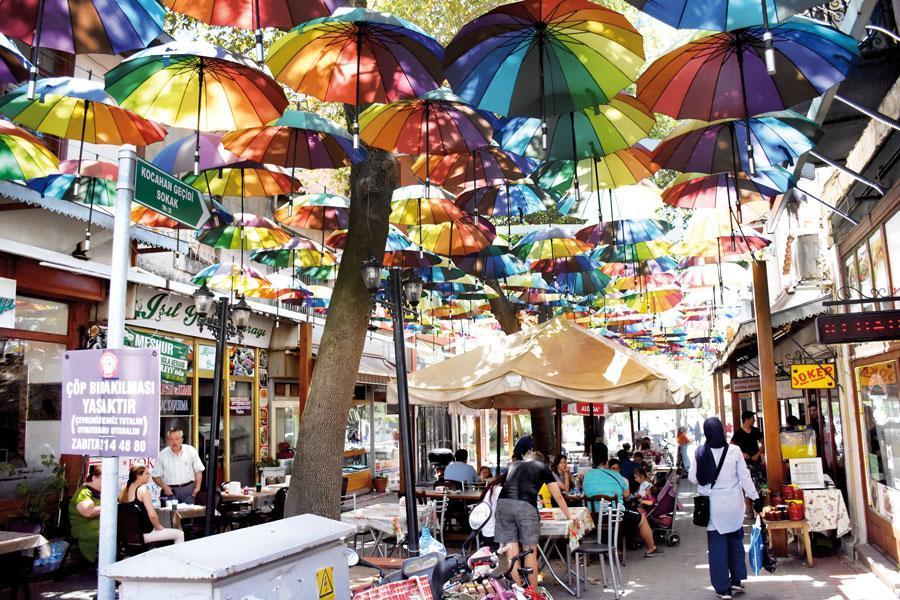
A historic Ottoman bazaar, called “Arasta” in Turkish, in the western province of Muğla has been attracting many people since its establishment hundreds of years ago.
The bazaar is home to 100 shops, with saddlers, shoe sellers, hairdressers, hardware dealers and coppersmiths still serving people every day.
The bazaar, in the Menteşe district, has also been a spot for culture tourism since the Anatolian Beylics era.
The traditional commercial center, located at the intersection of north-south and east-west axes on an old caravan route of Muğla, is known for reflecting the region’s civil architectural characteristics.
Speaking to state-run Anadolu Agency, Muğla Sıtkı Koçman University History Professor Adnan Çevik said Muğla represented a typical Turkish-Islamic settlement, adding that the city still carried the traces of the past.
“When we look at historical records, we learn that this place has a history of 500-600 years. There is a copper market in the east and further down is the oil market. There is also a cereal market. Muğla is a typical Turkish-Islamic city and the bazaar is one of the most authentic places among other venues in the city,” he said.
Çevik said the city’s identity began developing during the Menteşe beylic era, adding, “When Turks became dominant in the region after the 1260s, this place was Turkified. The capital of the Menteşe beylic is Milas, but Muğla was considered the second capital.”
Menteşe Mayor Bahattin Gümüş said the Muğla bazaar was in the heart of the trade world in the past, famous with its inns, baths and narrow alleys.
Gümüş said they placed great importance to business places in the bazaar and that they restored two houses in the area and opened them to culture tourism.
“Menteşe is a city of history and culture. Foreign and local tourists began setting a route in Muğla. They visit old baths, the clock tower, mosques, restored places and nearby narrow streets. We want to highlight Muğla more with its bazaar,” he said.
Ömer Karaca, the president of the Association for Sustainability and Development of Muğla Bazaar, said the historic bazaar was significant for the region.
Karaca said he has been in the leather business in the bazaar for 50 years. But he says there are many other different businesses in the bazaar.
“Restorations have been made in the bazaar. The governor’s office and local administrations provided support for these restorations. The bazaar is in very good condition compared to its state in the past. Arrangements have been made for its architectural structure. Tourists show interest in the bazaar. There used to be tours coming here before. Such places should not be defeated by new technology.”
One of the oldest artisans in the bazaar, the 81-year-old Mustafa Kara said he has sold bags in the bazaar for 60 years.
Kara believes the bazaar was more active in the past. “There were carpenters, coffee houses and car mechanics here. Most of those buildings were demolished and a new system was brought. Shops have become smaller. If the buildings were bigger, working would be easier,” he said.